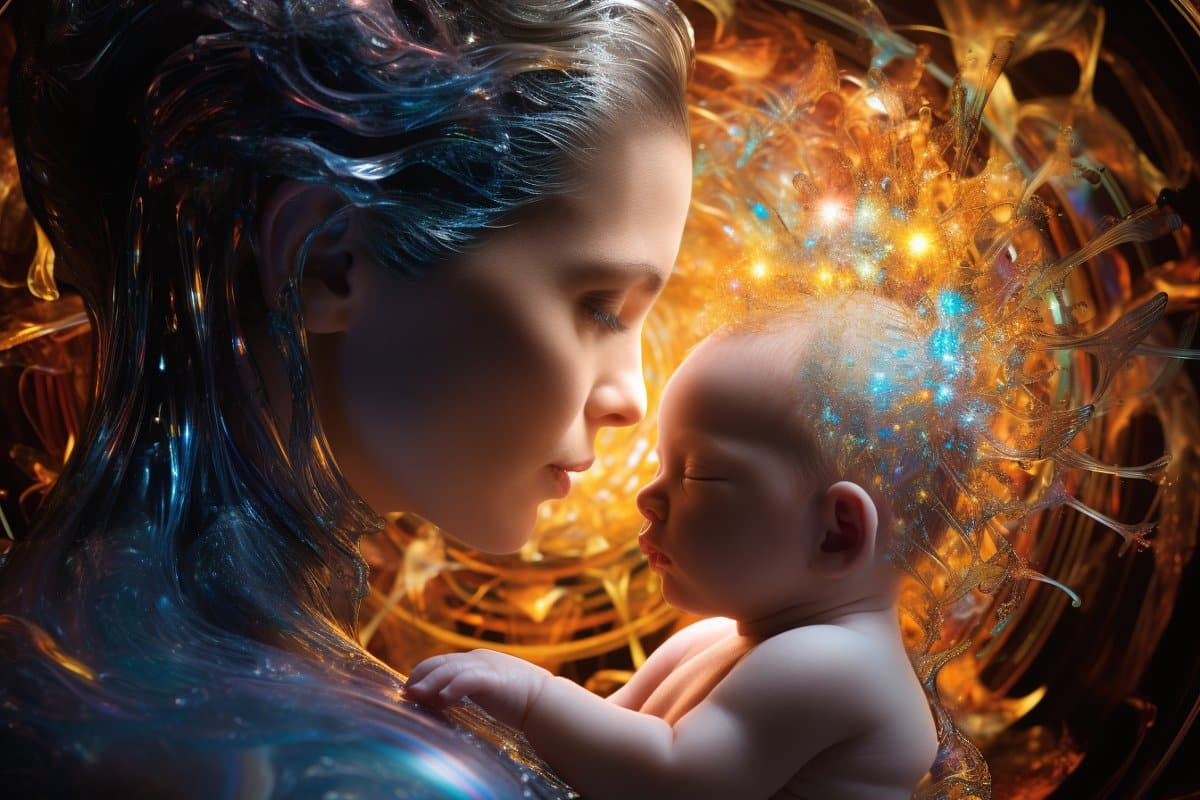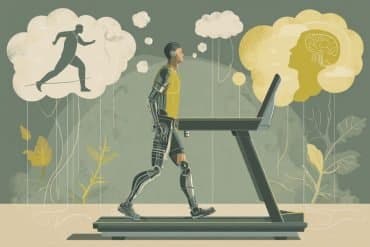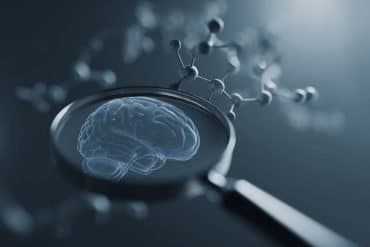Summary: Newfound evidence indicates that conscious experiences start as early as in late pregnancy. The study suggests that an infant’s brain is capable of forming conscious experiences that shape their emergent self and environmental understanding.
This research, deeply embedded in the mysteries of infant consciousness, utilizes recent advancements in identifying consciousness markers through brain imaging in adults, applying these to assess infant consciousness.
Thus, the findings not only illuminate the early onset of consciousness but also bring forth pivotal clinical, ethical, and potential legal implications.
Key Facts:
- Markers of Consciousness: The study utilizes brain imaging markers, proven to indicate consciousness in adults, to assess consciousness in infants for the first time.
- Sensory Integration: Newborns appear capable of integrating sensory and developing cognitive responses into coherent conscious experiences, aiding in understanding others’ actions and formulating responses.
- Perceptual Capacities: Infants, while being aware of fewer items and taking longer to perceive their surroundings than adults, can process a wider variety of information, such as sounds from varied languages.
Source: TCD
There is evidence that some form of conscious experience is present by birth, and perhaps even in late pregnancy, an international team of researchers from Trinity College Dublin and colleagues in Australia, Germany and the USA has found.
The findings, published today in the peer-reviewed journal Trends in Cognitive Science, have important clinical, ethical and potentially legal implications, according to the authors.

In the study, entitled ‘Consciousness in the cradle: on the emergence of infant experience’, the researchers argue that by birth the infant’s developing brain is capable of conscious experiences that can make a lasting imprint on their developing sense of self and understanding of their environment.
The team comprised neuroscientists and philosophers from Monash University, in Australia, University of Tübingen, in Germany, University of Minnesota, in the USA, and Trinity College Dublin.
Although each of us was once a baby, infant consciousness remains mysterious, because infants cannot tell us what they think or feel, explains one of the two lead authors of the paper Dr Tim Bayne, Professor of Philosophy at Monash University (Melbourne).
“Nearly everyone who has held a newborn infant has wondered what, if anything, it is like to be a baby. But of course we cannot remember our infancy, and consciousness researchers have disagreed on whether consciousness arises ‘early’ (at birth or shortly after) or ‘late’ – by one year of age, or even much later.”
To provide a new perspective on when consciousness first emerges, the team built upon recent advances in consciousness science. In adults, some markers from brain imaging have been found to reliably differentiate consciousness from its absence, and are increasingly applied in science and medicine. This is the first time that a review of these markers in infants has been used to assess their consciousness.
Co-author of the study, Lorina Naci, Associate Professor in the School of Psychology, who leads Trinity’s ‘Consciousness and Cognition Group, explained: “Our findings suggest that newborns can integrate sensory and developing cognitive responses into coherent conscious experiences to understand the actions of others and plan their own responses.”
The paper also sheds light into ‘what it is like’ to be a baby. We know that seeing is much more immature in babies than hearing, for example.
Furthermore, this work suggests that, at any point in time, infants are aware of fewer items than adults, and can take longer to grasp what’s in front of them, but they can easily process more diverse information, such as sounds from other languages, than their older selves.
About this consciousness and neurodevelopment research news
Author: Fiona Tyrrell
Source: TCD
Contact: Fiona Tyrrell – TCD
Image: The image is credited to Neuroscience News
Original Research: Open access.
“Consciousness in the cradle: on the emergence of infant experience” by Tim Bayne et al. Trends in Cognitive Sciences
Abstract
Consciousness in the cradle: on the emergence of infant experience
Although each of us was once a baby, infant consciousness remains mysterious and there is no received view about when, and in what form, consciousness first emerges.
Some theorists defend a ‘late-onset’ view, suggesting that consciousness requires cognitive capacities which are unlikely to be in place before the child’s first birthday at the very earliest. Other theorists defend an ‘early-onset’ account, suggesting that consciousness is likely to be in place at birth (or shortly after) and may even arise during the third trimester.
Progress in this field has been difficult, not just because of the challenges associated with procuring the relevant behavioral and neural data, but also because of uncertainty about how best to study consciousness in the absence of the capacity for verbal report or intentional behavior.
This review examines both the empirical and methodological progress in this field, arguing that recent research points in favor of early-onset accounts of the emergence of consciousness.







